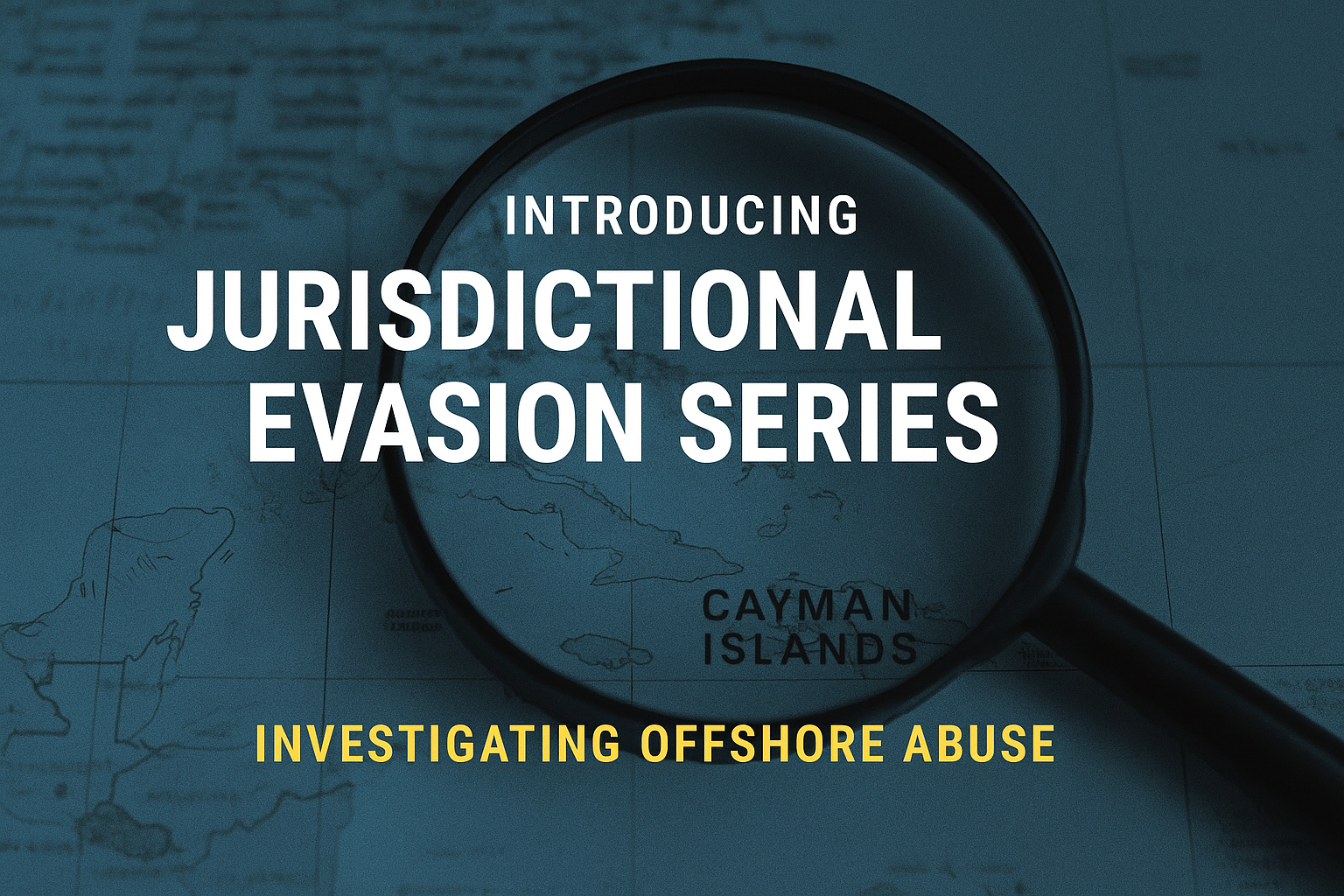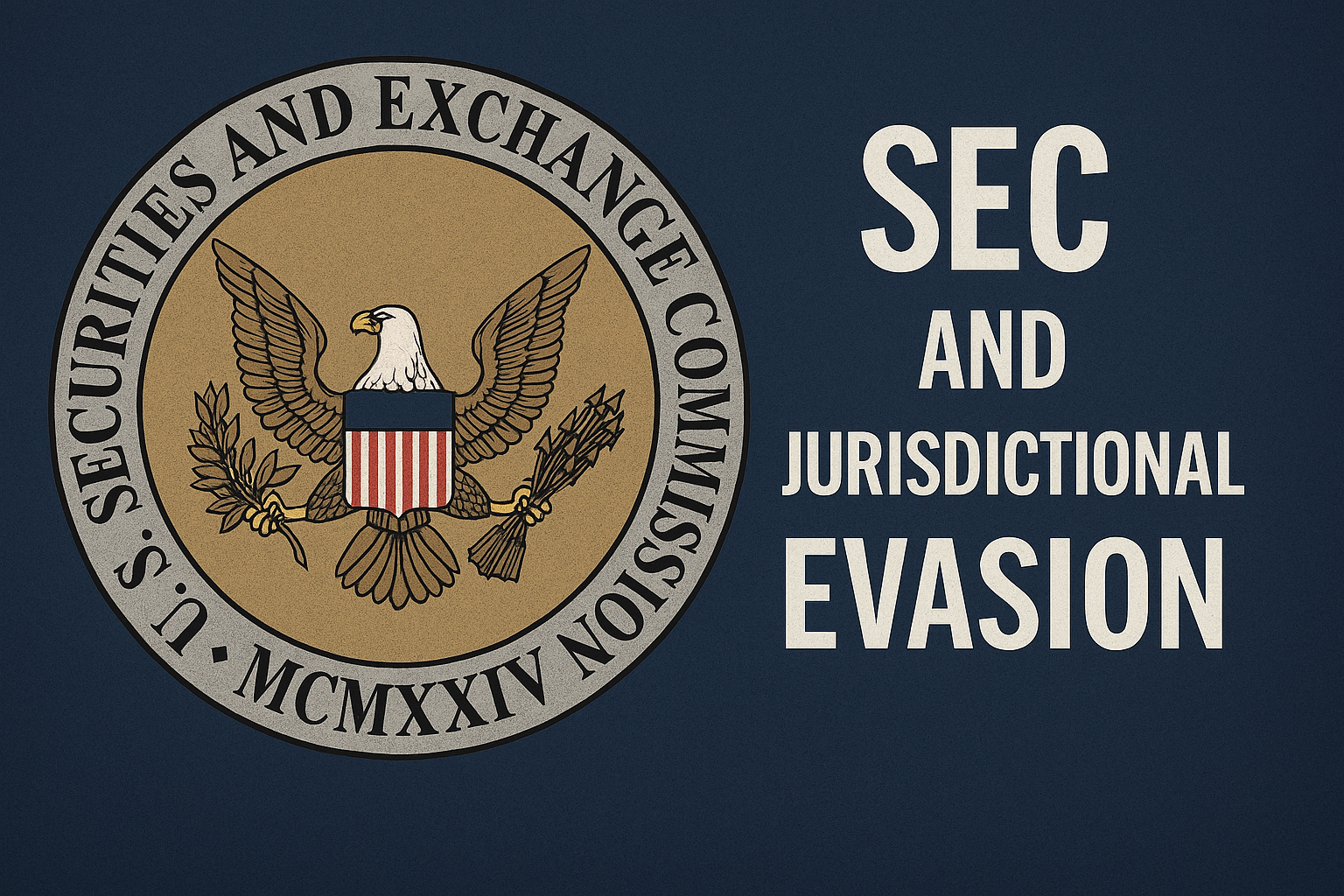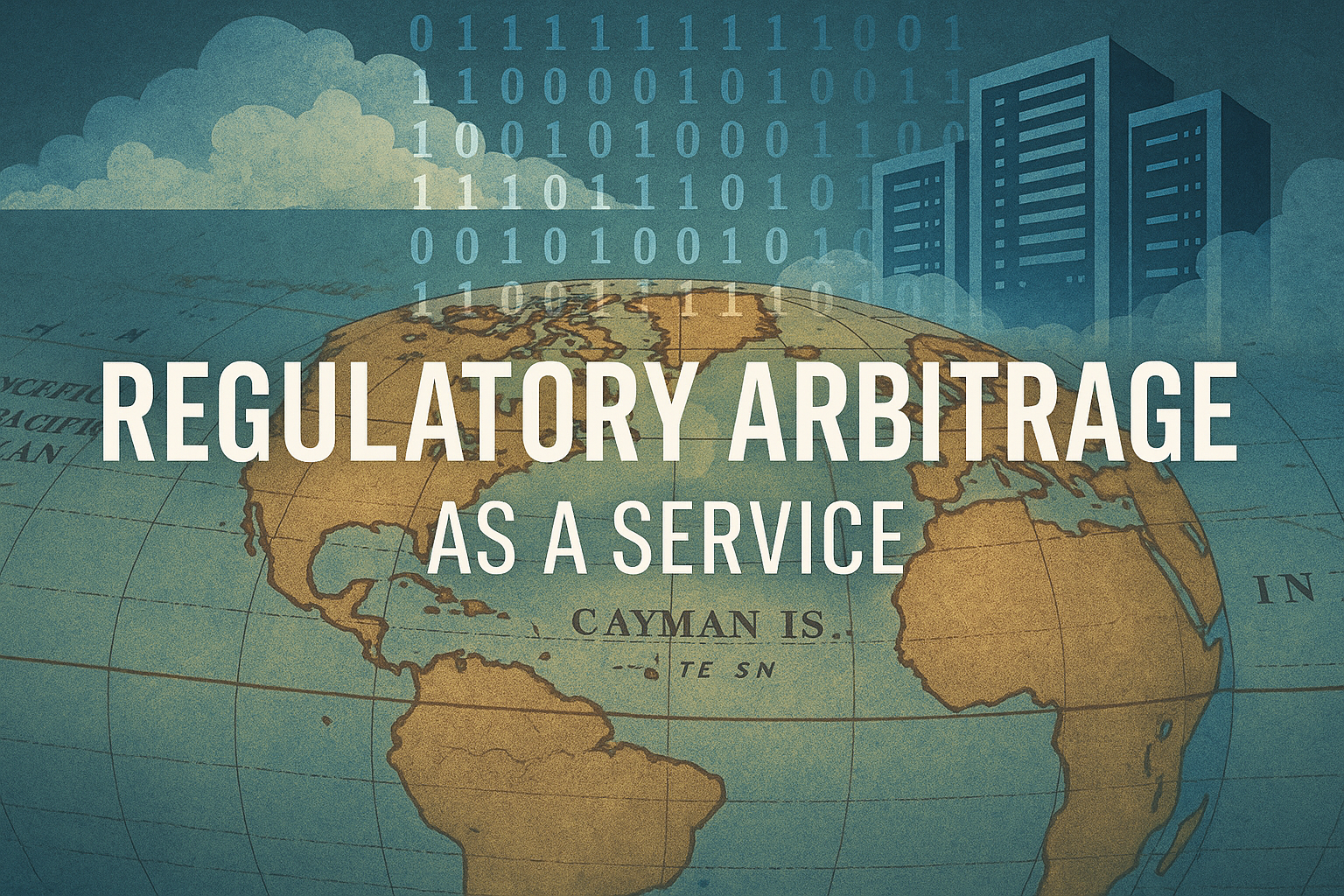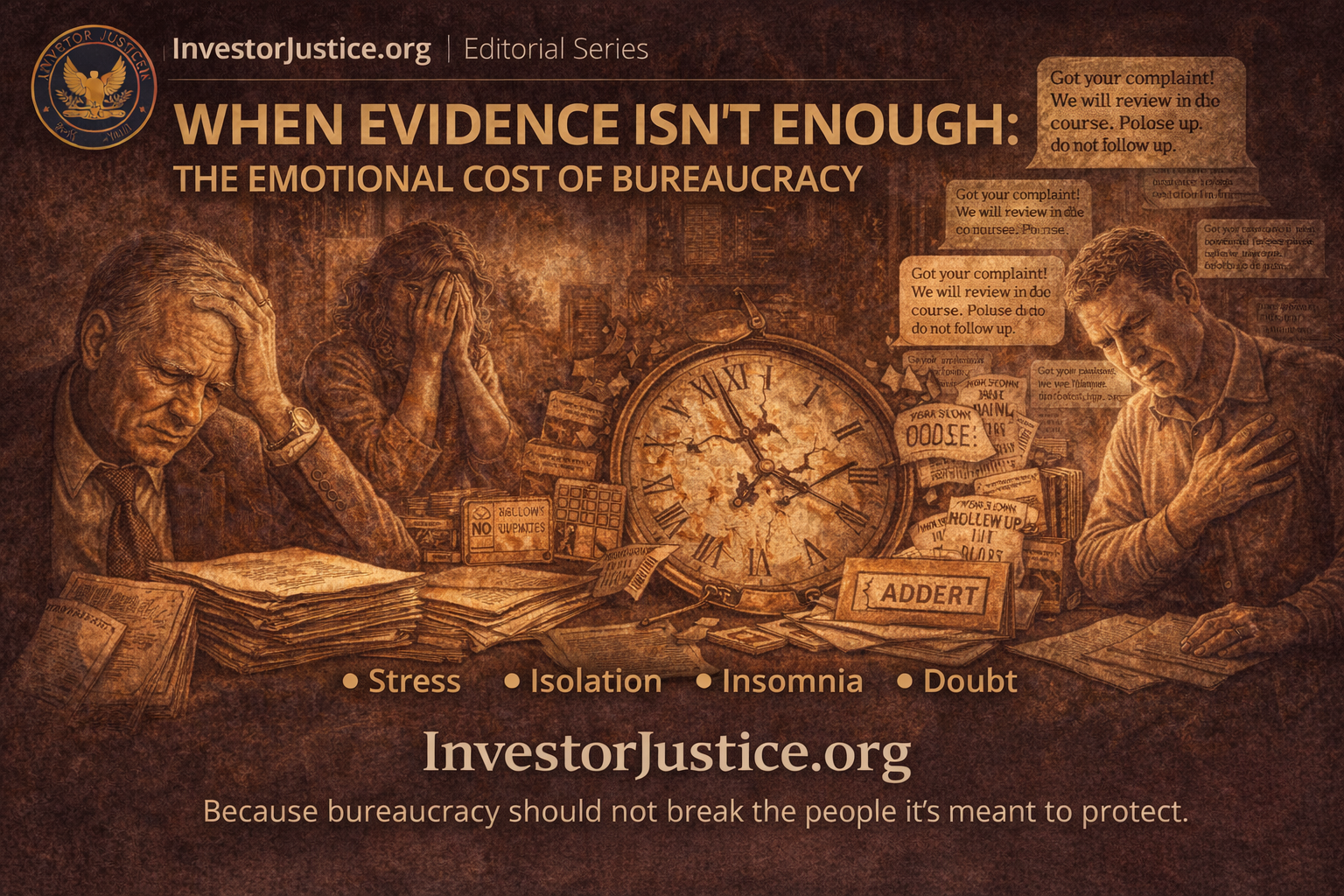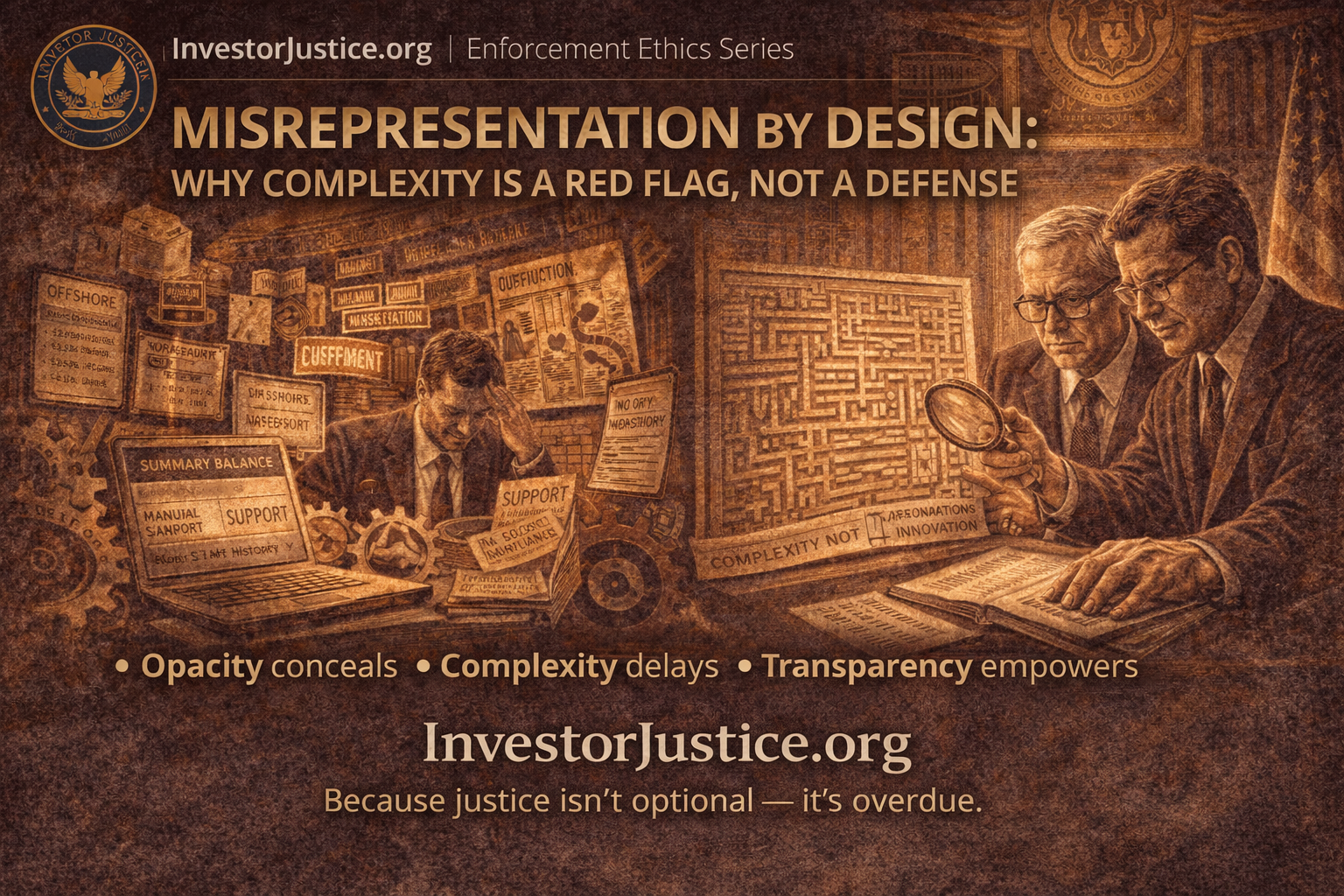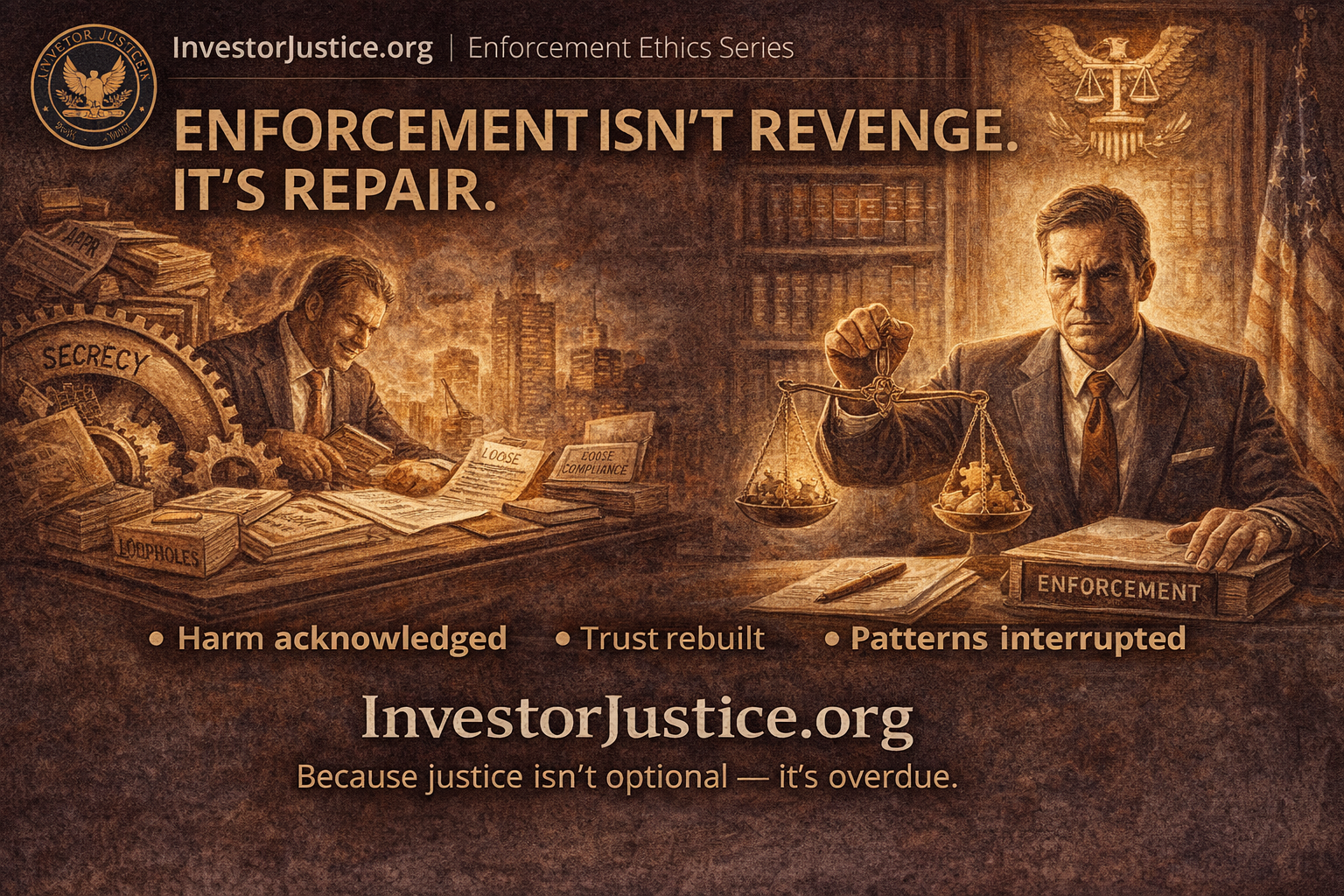Table of Contents
When accountability ends at the border, impunity begins.
Jurisdictional evasion is the modern architecture of that impunity, a legal and operational framework designed to move misconduct faster than oversight can follow.
Across global finance, the pattern repeats: entities register in one country, market in another, and operate everywhere in between.
When things go wrong, the victims are left stranded in a legal dead zone where no regulator claims full jurisdiction and every lawyer points somewhere else.
This series explores how that system works, who benefits from it, and what can be done to close the accountability gaps that allow it to thrive.
Why This Series Matters
Jurisdictional evasion isn’t a fringe phenomenon; it’s now the operating system of financial misconduct.
From digital asset platforms to unlicensed lenders and offshore insurers, the playbook is remarkably consistent:
- Fragment identity: register shell entities across multiple jurisdictions.
- Exploit delays: use differing disclosure laws and language barriers to frustrate oversight.
- Deny standing: claim that customers belong to another legal system until all systems defer responsibility.
Each article in this series exposes a different layer of that playbook, tracing how corporate structures, compliance gaps, and regulatory silos intersect to obscure the truth.
What the Series Covers
- Primer: The Cayman Islands Playbook
A neutral, educational overview of how Cayman corporate structures evolved to serve legitimate business purposes and how those same mechanisms are often repurposed to obscure ownership, accountability, and jurisdiction. - Case Study: Nexo and the Mechanics of Offshore Obfuscation
An analysis of Nexo’s use of Cayman, Swiss, and UK entities to market U.S.-facing financial products without transparent consumer accountability. - Thematic Extension: Regulatory Arbitrage as a Service
A broader look at how corporate service providers and offshore jurisdictions have transformed regulatory arbitrage into a globalized industry.
Each installment combines investigative documentation, open-source intelligence, and primary-source validation to help readers trace evidence directly rather than rely on secondary narratives.
Transparency-as-Infrastructure
InvestorJustice.org approaches financial transparency not merely as journalism but as civic technology where documentation, verification, and public traceability form the infrastructure of accountability.
In this series, each article is not only a story but also a data artifact:
- Linked to jurisdictional and entity datasets
- Tagged for public query in the InvestorJustice Vault
- Mapped to regulatory filings and disclosures where available
This ensures that readers, policymakers, and journalists can audit the audit — confirming the integrity of both content and conclusions.
What Comes Next
Over the coming weeks, InvestorJustice.org will publish the Jurisdictional Evasion Series in sequential releases, each accompanied by public data references and related case links.
Readers can follow the tag #Jurisdictional Evasion Series
or visit the dedicated series page at:
https://investorjustice.org/tag/jurisdictional-evasion-series
Each article will include jurisdictional maps, evidence summaries, and verified source links — allowing anyone to trace, validate, and contribute to the public record.
Footer Navigation
Part of the Jurisdictional Evasion Series
View All Articles →

